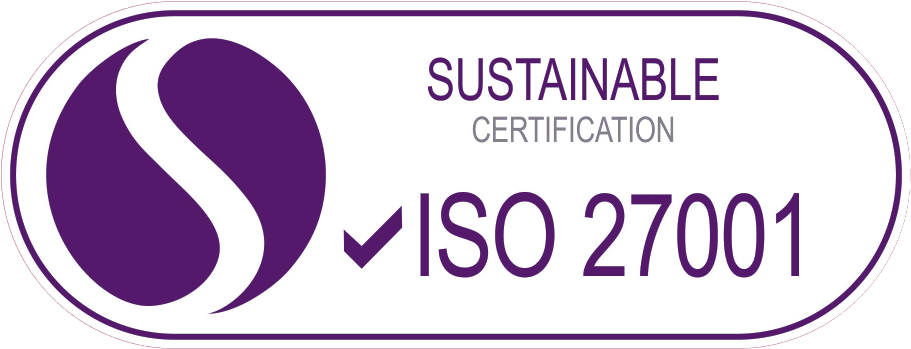Throughout the year it’s important to know what work-related and income-generating expenses you can claim as a tax deduction. This makes it easier to complete your online Tax Return at tax time.
These expenses, or, tax deductions reduce your taxable income and reduce the amount of tax you pay. You must be able to prove your expense though – so keep the receipt, bank statement or diary!
As a general rule, to identify expenses that may be acceptable as tax deductions, you should consider:
- Was the expense directly related to your work or income-generating activity?
- Do you have an official record of the expense – e.g. receipt or bank statement?
- Did your employer reimburse you for the expense? (If so, it’s not a tax deduction.)
If the expense was for both work and personal use, you need to determine the percentage of the expense related to work and the percentage attributed to personal use.
Here is a list of the most common tax deductions that we see at tax time when our customers are completing their online Tax Return.
1. Laundry, work uniform, safety clothing
If you bought protective clothing, occupation-specific clothing or work uniforms specifically for your job, you can claim these costs as tax deductions, as well as related cleaning costs. Don’t forget your footwear when considering these tax deductions.
To claim these costs as tax deductions, you need to have written evidence of these costs, such as diary entries and receipts.
Unfortunately, you cannot claim costs for conventional clothing or non-compulsory work uniforms.
You can find out more about clothing, laundry and dry-cleaning expenses you can claim from our website.
2. Mobile phone use
If you use your personal phone for work purposes, you can claim the cost as a tax deduction as long as you paid for the costs and have receipts to substantiate the tax deduction. Most people use their phone for both work and private use. In this case you will need to work out the percentage that relates to your work use.
If your employer reimburses your phone expense, you cannot claim a tax deduction.
The easiest way to work out your work percentage is to grab a bill and itemise out the work versus personal use and apply that percentage to work out your tax deduction for the full year.
3. Home office expenses
Many of us had to work from home during the coronavirus crisis. Most of us even gave our home offices as a little makeover or full renovation to get started. Onto what home office expenses you may be able to claim as tax deductions.
Direct expenses that you can substantiate:
- Phone and Internet expenses.
- Home office consumables eg, paper and printer ink, stationery and the like.
- Home office equipment eg, laptop, tablet, phone, printer, furniture and furnishings. With bigger items you can claim either:
- The full cost of the items, if it’s less than $300; or
- The decline in value (also known as depreciation) for items over $300.
You most likely cannot claim:
- Home expenses, like mortgage interest, rent and rates
- Costs of general household items, like coffee, tea and milk
If you think you can, please book a meeting with us before completing your online Tax Return.
There are certain criteria you should consider before you claim an amount for home office expenses in your Tax Return.
The ATO have made claiming working from home tax deductions easier with their ‘shortcut method’ for claiming additional running expenses. This is a temporary ATO-approved ‘shortcut method’ of 80 cents per hour for all additional running expenses for the period 1 March 2020 to 30 June 2020 in the 2019-20 income year and from 1 July 2020 until 30 June 2021 for the 2020-21 income year.
You can find out more about working from home tax deductions that you can claim from our website.
4. Donations
If you gave a donation to an organisation, you may be able to claim a tax deduction. There are specific rules that apply to donations however.
Generally, you can claim any donation you made above $2 if it was to a ‘deductible gift recipient’.
Remember, you have to be able to substantiate the donation and if you’re unsure whether the organisation you are donating to is a ‘deductible gift recipient’, you can always ask them, or use the link above to check on the Australian Business Register website.
5. Tools and equipment
You can claim a tax deduction for the cost for tools and equipment you require for work purposes. As always, if the tools are used for both work and private expenses you need to work out what percentage relates to work and personal use to work out what you can claim as a tax deduction. The cost of the tool will affect the type of deduction you can claim:
- Tools that cost $300 or less can be claimed an immediate tax deduction.
- Tools that cost over $300 or form part of a set that is over $300, you can claim a deduction for their decline in value (depreciation).
You can also claim a tax deduction for the cost of repairing and insuring tools.
If you run a small business the rules are slightly different. For more information on this, see our sole trader tax tips section on our website
6. Last year’s Tax Return cost
If you did an online Tax Return last year, you can claim a tax deduction for the cost of completing your online Tax Return. If you didn’t do your Tax Return the easy way, you can claim the big expense of completing your Tax Return in a face to face meeting and driving to each appointment. But, you can’t claim back the extra time that it took you to complete your Tax Return, you’ll never get that back!
Best to find an online Tax Return service list www.oneclicklife.com.au where it’s a fixed price and the tax advice is free. This is a cheaper and quicker way to do your tax and you can do it from where you want, when you want, from any device you want.
7. Motor vehicle and work travel expenses
While you generally can’t claim a tax deduction for expenses for getting to and from your regular workplace, there are some work-related vehicle and travel expenses you may be able to claim.
You can claim a tax deduction for the following motor vehicle expenses:
- If your employer requires you to attend more than one work location you can claim for motor vehicle expenses.
- If you need your car to perform your work duties you can claim for motor vehicle expenses.
There are different ways to claim a tax deduction for motor vehicle expenses, but the most popular is the cents per km method. You can find out more about motor vehicle expenses you can claim on our website.
Where your employer requires you to travel for work you can claim a tax deduction for accommodation, flights, trains, buses and other expenses when these expenses are not reimbursed by your employer.
8. Industry specific deductions
Different industries allow for specific tax deductions for work-related expenses.
We have prepared a growing list of occupations and industries on our website. To see what industry-related tax deductions you can claim click on the link.
9. Self-Education expenses
If your education expenses were work related and you enrolled in an eligible course, you may be able to claim a tax deduction.
Self-education tax deductions can be claimed if your study is directly linked to your work. The course you undertake must lead to a formal qualification and meets these conditions:
- The self-education expenses must maintain/improve skills and knowledge required in your current job.
- The self-education expenses result in or is likely to lead to, an increase in your income.
You cannot claim self-education expenses that do not have a significant enough connection to your current employment.
You can find out more about self-education tax deductions you can claim on our website.
10. Income protection insurance
You can take out insurance against loss of income. The insurance premiums you pay can be included in your online Tax Return as a tax deduction.
Life insurance, critical care insurance or trauma insurance are not tax deductible. Where your income protection is paid from your superannuation contributions these are also not allowed.
11. Investment income related tax deductions
You may be able to claim investment income tax deductions in circumstances where you have received:
- Bank interest on your savings.
- Dividends from your share or ETF investments.
- Rental payments from an investment in property.
- Other types of investment income.
Tax deductions related to investment income is typically interest charged on money borrowed to purchase the asset that you are deriving income from. In the case of rental properties, you may also have ongoing costs that can be claimed such as rates, repairs, strata fees, property management fees and others. For all types of investment income, you may also be able to claim money you paid for investment advice from a tax agent or financial planner.
12. Other work-related expenses
Finally, we get to the “other” catch all. Other work-related expenses you may be able to claim as tax deductions, depend on your work and individual circumstances. Expenses to consider include:
- Books, periodicals and digital information subscriptions.
- Sun cream and protective sunglasses where you work outside.
- Safety equipment such as safety goggles, ear plugs and hard hats.
- Overtime meals (see tax determination on the ATO site)
- Union fees and bargaining agents fees.
- Subscriptions to associations and professional memberships.
- Personal superannuation contributions.
- Working with children checks.
Remember, with any expense, for it to be a tax deduction you must be able to substantiate it.
Once you’ve lodged your online Tax Return, make sure you keep records of expenses. The ATO may ask you to provide evidence to support any tax deductions you make.www.oneclicklife.com.au


